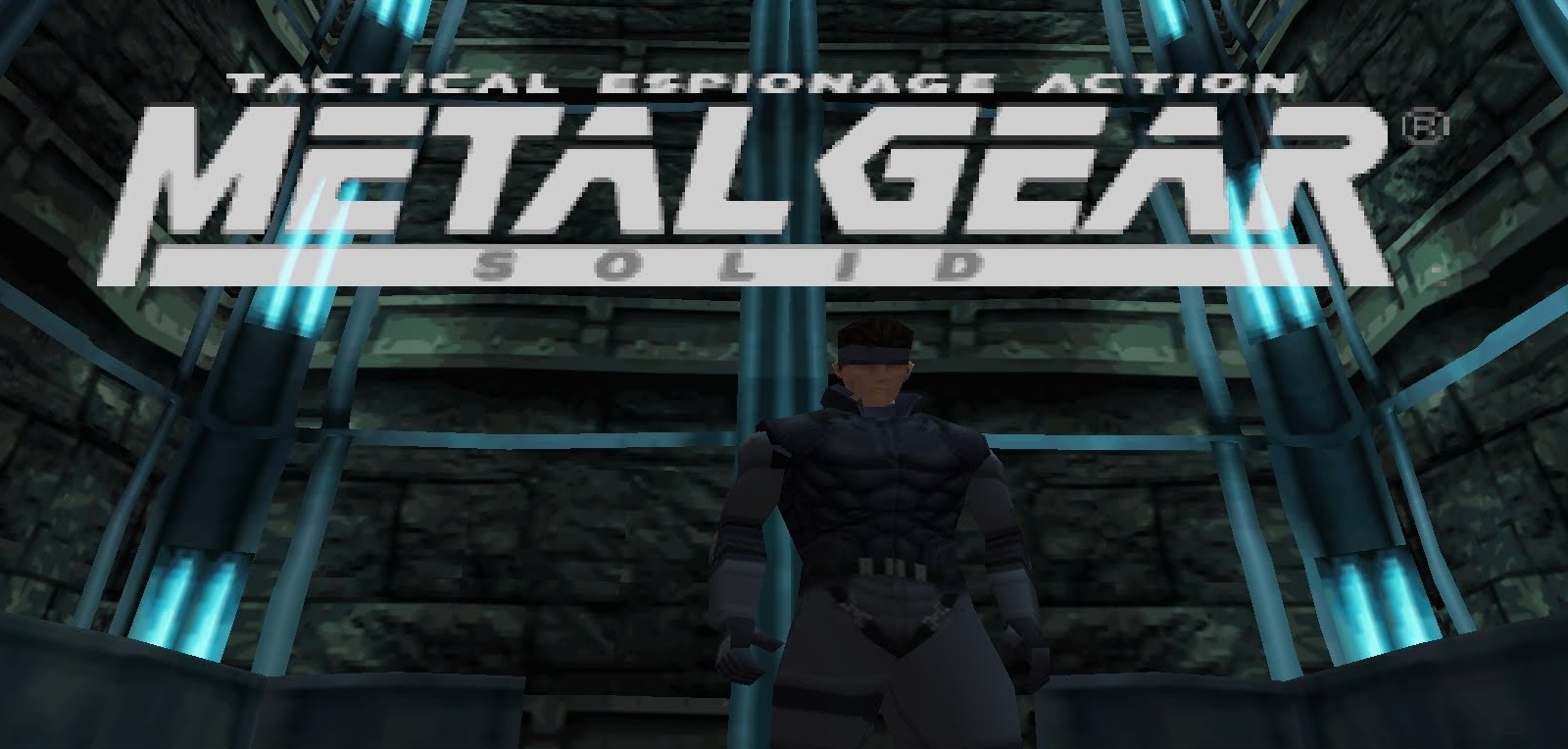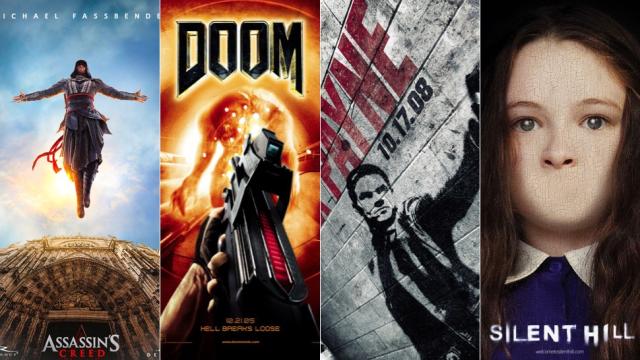Hollywood keeps making video games movies and they keep being terrible. So, the people in Hollywood keep on having to talk about whether any video game film adaptation will ever be good.
Starting in the 1990s, the earliest live-action video game movies were blatant cash-in affairs, meant to pull in dollars from a medium that Hollywood studios had no stake in and barely understood. Super Mario Bros., Street Fighter, and Mortal Kombat were total cheesefests, barely recognisable contortions that seemed embarrassed to even exist.
A new wave began in the 2000s, sparked by the better-than-most execution of Lara Croft: Tomb Raider in 2001. But Hollywood did as Hollywood does, chasing after success with lesser wannabe fare, like the oeuvre of infamous director Uwe Boll. Postal, Alone in the Dark, and In the Name of the King: A Dungeon Siege ramped up the idea that video game movies were destined to be horrible.
Since then, that “video game movies suck” idea has become a sort of self-fulfilling prophecy that creators involved with video game movies have to dodge and contend with. Likewise, the dreaded video game question rears its head in the publicity junkets and set visits used to generate anticipation for each film’s release.
Herewith, an incomplete (but still rather long) list of directors, screenwriters, actors, and producers waxing philosophical about what it’s so damn hard to make a movie out of a video game.
John Wells, producer, Doom
Source: Slasherama
Video game adaptations don’t have the best rep…
John Wells: “A lot of them have really sucked.”
You took the words right out of my mouth! For every Tomb Raider, there’s a House Of The Dead or an Alone In The Dark. Have you felt the weight of scepticism while making Doom?
John: “Sure. I think it’s well-deserved scepticism, because there have been a lot of video game pictures that none of us really wanted to go see. Particularly with this kind of title, which so many people remember fondly as a game, the danger is that you disappoint a lot of people. That’s why we spent a lot of time making sure that the script was really good and brought in a lot of financial support from Universal, so it wasn’t done on the cheap. We’ve got a lot of great visual material on the screen and a terrific cast.”
John Moore, director, Max Payne
Source: IndieLondon
I think there comes a point where you stop with the game. You put it in a drawer and it stays there because you have to make a movie. There are apparently 11 million players of the game world-wide and that is, of course, a huge fan-base. So make them happy? Yes! But also give them something that’s not just ticking off what’s in the game. Plus, you have to make a movie that people want to go and see. You can’t afford to be that specialist. Video games have such a patchy history. They’re very hit and miss in terms of being turned into movies. So, that hangs over you as well.
Source: RTE
I was very wary about it as doing a film adaptation of a video game can be quite risky but I got the script and at first it read like a pulp novel and I’m a big fan of that Americana detective stories, so it read like that. I thought why don’t we push harder and after about six months we ended up with a script that I thought could be a great movie.
When you make a movie out of a video game, it’s a very dangerous game because what you’re basically doing is taking control away from a player. You’re taking that play station controller out of the hands of his or her hands so you better make sure that you’re putting something of value back into their hands. For me I thought that if we’re going to do that, then the emotional experience has to be as attractive as the game play.
Dwight H. Little, director, Tekken
Source: AXS
“There are a lot of movies that have suffered from just trying to be a visceral experience. That is fine for a short film or a video game. But to make a narrative movie and keep an audience involved for an hour and a half, you really need to have them invest in the characters. The director needs to have the audience care about the people they are watching.”
Avi Arad, producer, Spider-Man
Source: IFC
“Sometimes I would find that video games lacked one particular component: the definition of the hero of the game,” he explained. “And that’s because you are that character – especially with the first-person shooters.”
Aleksander Bach, director, Hitman: Agent 47
Source: Cinemovie
I think to make this successful, if you do game adaptation, what you need first of all — it doesn’t matter if it’s a video game or not — you need a great story, and you need great characters, and you need great actors to bring it to life. When you have this and you combine it with great action and something which feels fresh, then you have a chance to put the puzzle together in a very nice way and that you create something which feels right.
I think that’s the most important thing that you have great characters that you care for. When it’s based on this game, on Hitman, and you have this cold assassin Agent 47, you also need to care for this guy. When he’s just too cold, it doesn’t work.
Source: Den of Geek
Over the last few years, there has been a discussion amongst cultural commentators about how well a computer game can tell a story, what are your thoughts on that?
I have a big respect for it, so many computer adaptations just really failed. I think we can be clear about that, they very often didn’t work out and I think the mistake was very simple, the people were concentrating their expectations too much on the look of the game and what I think what was often missing was the passion. I never tried to start a whole project about the game itself, I started from scratch and really needed to find out what is it about the character of Hitman, Agent 47?
David Goyer, screenwriter, Man of Steel
Source: Digital Spy
“I think the reason is actually pretty simple: most good video games are about immersive environments. If it’s a first-person shooter you are the character. Most games, and this is changing, tend not to have strong characters. If you think about video games you think about how cool that level was, I did this or I did that.
“You realise that if you’re adapting an environment or a milieu for film, a video game actually does a better job of it. A film will never do as good a job or immersive a job as the video game.”
Duncan Jones, director, Warcraft
Source: Business Insider
“I think a lot of people, who are kind of brought into these [movie projects] who don’t really know about the game, try too hard to bring in what they think the game is and maybe sometimes miss … the experience that the players of the games are craving to see in a movie,” he says.
Justin Kurzel, director, Assassin’s Creed
Source: Reddit
“I think it’s always tricky adapting from a source material at times which might not have enough behind it to sustain a compelling narrative. Fortunately, Assassin’s Creed has a world behind it with big ideas, visually unique and compelling ideologies. It’s just great material for a film, so hopefully it can be something for fans and also those that are not familiar with this universe.”
Roger Avary, screenwriter, Silent Hill
Source: Edge Online, via Silent Hill Memories
EO: What kind of impact will Silent Hill have on the way games are adapted in the future? Will it inspire a global change across the entire field, or simply make it easier for more faithful adaptations to get the go-ahead?
Avary: I think that as video games evolve and become more cinematic, there’ll be a natural convergence. I think that one of the greatest frustrations between games and cinema is that game designers have been attempting to fall into passive entertainment. You’re playing an interactive game and then suddenly you stop and you’re sitting there watching a cinematic. It’s like ‘well hold on a minute, this is a game and I’m not an active participant’. So I actually think that eventually game designers will realise that trying to make movies out of their games is not the key, and that it’s instead creating an interactive experience full of consequence that drives the story along without stopping. Movies, by design, are passive entertainment, which is not to say that that’s any worse or lesser than gaming.
Maybe the question is: will Silent Hill make game designers more comfortable? Guys like Uwe Boll have done a lot of damage, and I don’t know that one good game adaptation will undo all of it.
EO: Would you say that the way in which the movie industry’s treatment of games has evolved is directly linked to the sophistication of the games themselves? In other words, have the movies been disrespectful, or have the games been too simple?
Avary: Often, you have movies that are made by people who have no idea what a control scheme is or what a gaming experience is like… I think that as the older generation of filmmakers die off and a newer generation who are more comfortable with gaming experiences come around, those adaptations will naturally become more faithful, understanding and respectful.

Jordan Vogt-Roberts, director, Metal Gear Solid (in production)
Source: Slashfilm
I think that they fundamentally don’t understand the difference between an active experience and a passive experience and how you translate a active experience into a compelling, passive experience. Because there are things that you can get away with in an active experience in a video game that would not fly in a movie in terms of storytelling, in terms of a lot of different things, in terms of characters. In terms of set pieces. There are things that, when you take [it] out the active experience, suddenly it’s not compelling anymore. Suddenly it doesn’t do anything. And so I think like that core conceit of understanding the difference between an active and a passive experience is one of the core things that people haven’t quite unlocked yet.
